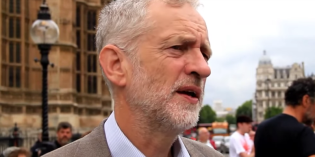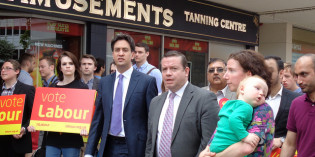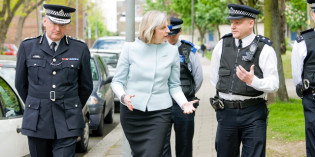Tag: Tim Bale

Same difference? Female (and male) members of Britain’s political parties
A recent report by the Party Membership Project run by Monica Poletti, Tim Bale and Paul Webb has shown how the membership of Britain’s main political parties is more like to be male, middle aged and middle class. The results of this survey were explored in a discussion with several leading female MPs, which highlighted common concerns about party behaviours, class and gender barriers that reinforce these disparities in participation.

Snap election a win-win for Theresa May: she’ll crush Labour and make Brexit a little easier
How could Theresa May resist breaking her word? Tim Bale says a new cohort of Conservative MPs will boost her majority and enable her to return from Brussels with a softer Brexit. The Labour party, meanwhile, will be annihilated, and the Lib Dems can hope for at most 15% of the vote. Centrists may take […]

Politicians haven’t been honest with the public about immigration. They still aren’t
The populist surge that helped propel Brexit isn’t going to help the UK take control of its borders, writes Tim Bale. Neither Labour nor the Conservatives have been honest with voters about immigration policy, and that shows little signs of changing after a hard Brexit. The gap between rhetoric and reality has given politicians the opportunity to […]

Minority views? Labour members had been longing for someone like Corbyn before he was even on the ballot paper
Recent media reports suggest Labour MPs may be gearing up to move against Jeremy Corbyn. This is supposed to happen before a change in rules could see the number of nominations needed for any would-be candidate to enter a leadership contest reduced. Yet Corbyn was not elected by mistake, explain Tim Bale, Paul Webb and Monica Poletti. A large number of […]

Ideology is in the eye of the beholder: How British party supporters see themselves, their parties, and their rivals
Although the number of voters prepared to declare an affinity to a political party has shrunk over the last halfcentury, they still represent a substantial slice of the electorate. Here, Tim Bale, Paul Webb and Monica Poletti show that the gap between where strong supporters of Britain’s top six political parties place themselves ideologically and where they […]

Interview part 2: Tim Bale on Ed Miliband’s approach to public services, constitutional reform, and whether he can win
Labour could be on the cusp of returning to power after five years in opposition. Their success would represent a triumph which looked unthinkable back in 2010. Tim Bale has recently released a book detailing the Labour leader Ed Miliband’s quest to win in 2015. Here, Democratic Audit UK’s Sean Kippin interviews the author, asking […]

Interview: Tim Bale on Ed Miliband’s ‘presentationally weak, but strategically astute’ leadership of the Labour Party
Ed Miliband has been Leader of the Labour Party for almost five years, having been elected in the summer of 2010, following one of Labour’s worst ever election defeats. Despite many criticising his performance as Leader of the Opposition, he has the party on the cusp of regaining power – al biet as part of […]

The UK’s political parties do matter when it comes to determining immigration policy
Research on the impact of parties on public policy, and on immigration policy in particular, often finds limited evidence of partisan influence. Tim Bale and James Hampshire show that partisan influence depends not only on coalition dynamics, but how these dynamics interact with interdepartmental conflicts and lobbying by organised interests influence. Similar PostsSnap election a win-win for […]

Euro elections – experts react to the UK results
As anticipated by polls leading up to the vote, UKIP has won the European Parliament elections with the highest share of the vote and the most MEPs elected. Meanwhile, the Lib Dems have seen a near total wipe-out, going from 11 MEPs to 1 and dropping to fifth place behind the Green Party. Labour has […]

It’s the question, stupid: Democracy experts respond to the EU referendum question proposals
The Electoral Commission has this week set out its advice on the wording of the question in a proposed referendum on the UK’s membership of the European Union. In this post, leading democracy experts share their views on the alternative questions, considering the implications for the campaign and drawing on evidence from previous referendums in […]


 Democratic Audit's core funding is provided by the Joseph Rowntree Charitable Trust. Additional funding is provided by the London School of Economics.
Democratic Audit's core funding is provided by the Joseph Rowntree Charitable Trust. Additional funding is provided by the London School of Economics.